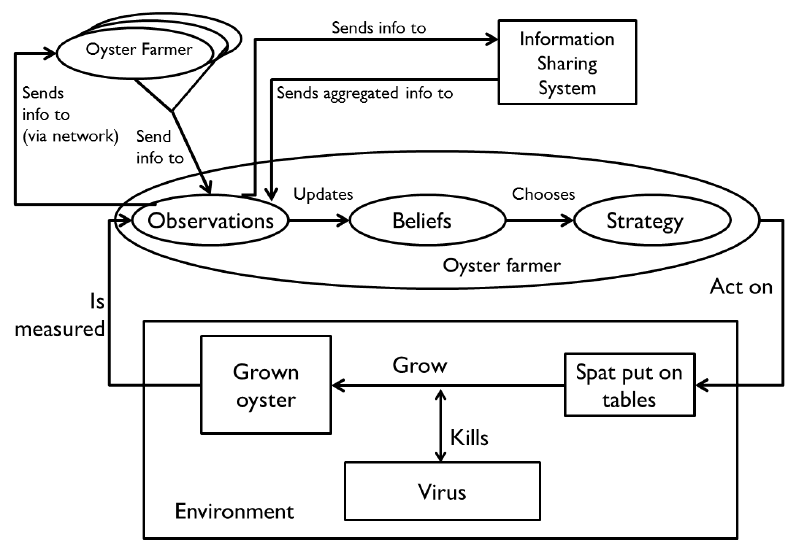Abstract
Information sharing systems are often viewed as a potential way of increasing scrutiny by actors of their interactions with natural resources. Scrutiny is then seen as encouraging sustainable and adaptable management of the resource. We tackle this claim by using an agent-based model to focus on the specific issue of oyster farmers dealing with the deadly OsHV-1 virus by sharing information about their own experience (practices and outcomes) via their social network and/or an information sharing system. We followed closely what access to such information sharing means for the environment (production), agents (beliefs) and interactions between the environment and agents (practices). In the model, introducing information sharing leads to a decrease in mortality rates and a convergence in agents’ beliefs. Agents stop changing their practices earlier when they share information, but heterogeneity in agent decision-making models leads to wider exploration of possible strategies and increased production. Agent-based modelling proved a suitable method for studying the impacts of information sharing.

This work is licensed under a Creative Commons Attribution-NonCommercial 4.0 International License.
Copyright (c) 2019 Nicolas Paget, Bruno Bonté, Olivier Barreteau, Gabriella Pigozzi, Pierre Maurel

